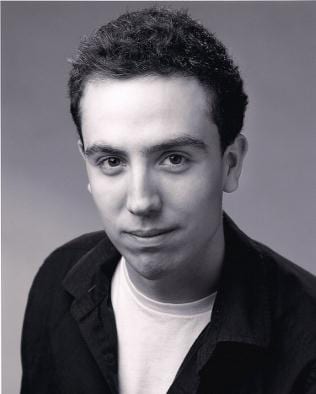When it premiered in 1992, David Mamet’s Oleanna simultaneously became an instant classic and one of the most contentious pieces of drama ever produced. The story of a sexual harassment claim by a student against her professor was alternately read as a case of feminism putting the screws to academia’s age-old misogyny or a delusional young woman destroying the career of a man who wanted only to help her.
Endlessly debated among critics, theatre historians and drama students, the script’s conflicted nature is precisely what caught director Iain Moggach’s attention.
“It’s been a great challenge to work on, because we’re constantly arguing in rehearsal about what exactly is happening between the characters and who’s in the right,” the recent Carleton University graduate says. “Part of the company mandate is that all artists share an equal stake in the creative process, which means a lot of opinions flying around the room.”
John, played by Jonah Lerner, is a college professor on the verge of tenure when he is approached by Carol, played by Laura Abramsen, one of his students struggling with the material in his class. Though initially insensitive to her plight, he eventually agrees to give her an A if she will meet him several times over the rest of the semester to discuss the course readings. At a heated point in the discussion, John, either carelessly or lasciviously, depending on your reading, places his hand on her shoulder, which she interprets, either rightly or wrongly, as a sexual assault. With the help of an unnamed campus group, she sets out to end his career.
“It’s an incredibly polarizing play, where people often switch their interpretation of events partway through watching it,” Moggach says. “Even though you have these two people onstage the entire time, it’s written in such a way that you never feel like you actually get both sides of the story.”
Though it’s not a specifically queer work, Moggach sees it as a piece many in the community will be able to identify with.
“I have a gay friend who teaches, and he has to be unbelievably careful about everything he says and does because it could be misinterpreted and come back to ruin his life,” he says. “What does become clear in this play is that there are power structures within educational institutions that may make it too easy for both students and teachers to attack each other out of spite.”


 Why you can trust Xtra
Why you can trust Xtra


